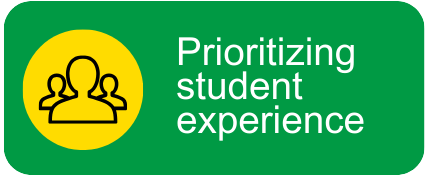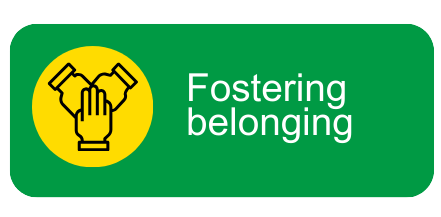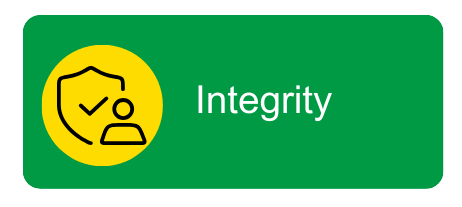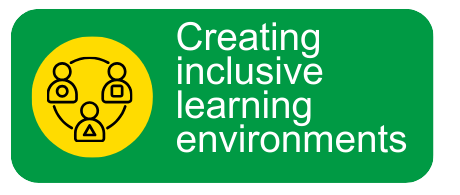About Us
.png)
Academic Accommodation Support (AAS) supports students with disabilities at TMU.
AAS uses "students with disabilities" (person-first language), but acknowledges that individuals may have different perspectives on how their identity is described—some prefer person-first language to emphasize their identity beyond their disability, while others prefer identity-first language (e.g. “disabled student”), valuing their disability as an integral part of their identity.
For more on the word disability, visit the Inter-University Disability Issues Association (IDIA) website (external link) and AAS' Faculty FAQ: What language should I use to talk about disability?

AAS is part of Student Wellbeing at TMU
Student Wellbeing is your source for health, wellbeing, and academic accommodation services and supports at TMU.
Student Wellbeing encompasses a variety of health, wellbeing, and academic services and supports at TMU that reflect on a university community that is fully committed and engaged in developing and sustaining supportive environments that foster wellbeing and academic success.
Student Spotlight
Meet three students registered with AAS and learn about their unique experiences as students with disabilities at TMU.
Our Mission & Vision

Our Mission
Academic Accommodation Support (AAS) aims to reduce barriers and foster inclusive learning environments for students with disabilities to facilitate equal access to education.
In partnership with students, faculty, and the TMU community, we provide resources, educational and awareness initiatives, and direct services such as individualized accommodation planning and learning and skill development.

Our Vision
We envision a TMU campus and community where disability is embraced as a natural part of human diversity, deserving celebration.
Here, all stakeholders share responsibility and are equally dedicated to facilitating accommodations and co-creating inclusive, accessible academic environments for students with disabilities.
Our Core Values & Beliefs

We strive to prioritize the student experience by offering comprehensive individualized services that address disability-related needs for access and inclusion in a responsive and supportive manner.
We recognize that students have multiple, intersecting identities that shape their experience at TMU and are committed to acknowledging and understanding how intersectionality and systems of power impact the student experience.
We are committed to improving our programming and processes by consulting with students and key stakeholders about their experiences with our services and responding with innovative solutions that address their diverse needs.

We strive to cultivate an inclusive environment within AAS in which students with disabilities feel welcomed and heard, and have opportunities to build community and connections with other students with disabilities.

We are committed to working with a high level of professionalism and maintaining academic integrity and the essential academic requirements of TMU courses and programs, in line with the Ontario Human Rights Code, Policy 159, and our departmental mandate.

We are dedicated to building strong working relationships with students and stakeholders based on a foundation of trust and mutual respect, and partnering with the TMU community to provide quality, streamlined services and resources for students with disabilities.

We are dedicated to clearly communicating our processes, procedures, guiding policies and legislation and making them available to our stakeholders for consistency and transparency in our service delivery.

We aim to influence campus culture related to disability and ableism in the TMU learning environment by advocating for inclusive design for learning, shifting attitudes and biases about disability, and identifying system-level changes that would remove barriers for students.
We are committed to engaging the TMU community in this process acknowledging that access and inclusion of students with disabilities at the university is a shared responsibility.
Our Guiding Policies & Legislation
Your Privacy & Confidentiality
Registration with Academic Accommodation Support (AAS) is voluntary; you may discontinue at any time. The information you provide is collected under the authority of the Toronto Metropolitan University Act, 1977 for the purpose of determining a need for academic accommodation. All personal information collected will be used, stored, protected and destroyed in accordance with the university's Information Protection and Access Policy and the Freedom of Information and Protection of Privacy Act, 1990 (“FIPPA”).
Your records are kept securely by Academic Accommodation Support. Files are securely archived one year after last active registration. Archived files are destroyed after 10 years. Please keep a copy of your documentation for your own records.
The following four circumstances are exceptions where AAS is required by law, and in accordance with our policies, to disclose your personal information to another department within the university or to the appropriate health, safety, police, or legal body:
- If you indicate that you may be a danger to yourself or others;
- In the case of apparent, suspected, or potential child abuse;
- If you report sexual abuse by a regulated health-care professional;
- In instances where the court subpoena your records.